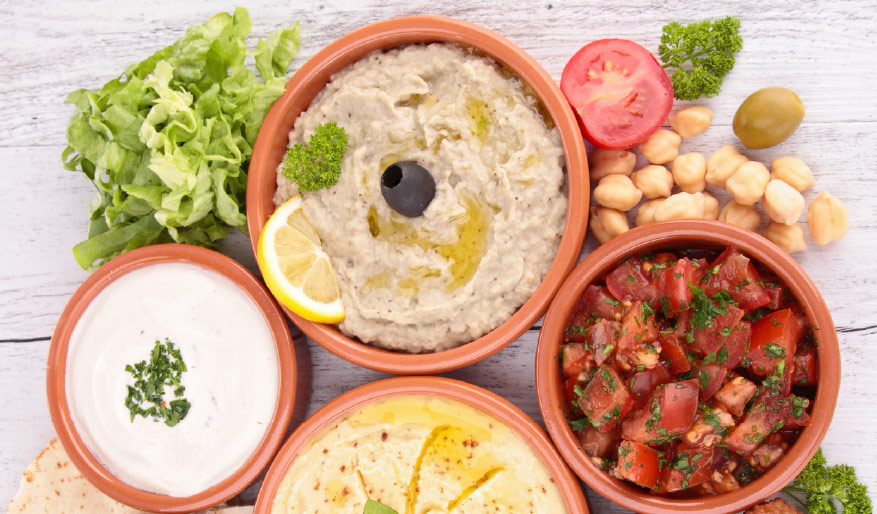
During the Holy month of Ramadan, healthy adult Muslims practice daily fasting from dawn until sunset. Traditionally, one breaks the fast at sunset with a meal called Iftar and then eats again pre-dawn at Suhoor. There is evidence to suggest that fasting can have positive effects on your health.
By following simple guidelines, it may help you lose weight and decrease blood pressure and cholesterol. Alternatively, over-indulging at Iftar and Suhoor can cause weight gain. The Holy month is often seen as a time to practice self-control, self-discipline, sacrifice and empathy for those less fortunate. It is encouraged to try to maintain these practices even outside of fasting hours.
Drink plenty of water and eat hydrating foods during Ramadan
Drink plenty of water between Iftar and Suhoor. High temperatures can also make you sweat more, so it is important to drink fluids to replace what you lose during the day (at least 10 glasses). You can also increase water intake by eating hydrating foods. Try adding watermelon to your Suhoor meal or eat it as a sweet treat after Iftar. The traditional Arabic fattoush salad contains plenty of hydrating cucumber and tomato. Avoid caffeinated drinks such as coffee, tea and cola, because caffeine can make some people urinate more often, which may lead to dehydration. Also remember that fizzy drinks with sugar will add calories to your diet.
Consume the right foods at Suhoor to last through the fasting hours
Suhoor should be a wholesome meal providing you with enough energy to last until Iftar. Choose the right foods to sustain you through the fast. Eating complex carbohydrates, such as fruit and vegetables, beans, chickpeas and lentils, will provide you with a long-lasting source of energy throughout the day. Include low fat dairy products, such as low fat labneh or laban, with your meal and try to incorporate healthy unsaturated fats like avocado, unsalted nuts, salmon, olives and olive oil.
Replenish your energy levels by eating a healthy, balanced Iftar
Eating three dates to break your fast is a traditional and healthy way to begin Iftar. Dates are an excellent source of fiber. Incorporate plenty of vegetables to provide vital vitamins and nutrients. Choose whole grains, which provide the body with energy and fiber. Enjoy grilled or baked lean meat, skinless chicken and fish, to get a good portion of healthy protein. In general, avoid fried and processed foods high in fat or sugar. Enjoy your meal and avoid overeating by eating slowly.
Meal suggestions
Suhoor
- Oatmeal with a low fat laban smoothie made with fresh fruit
- Lentil soup with chopped carrot, celery and onion
- Zucchini labneh dip with fresh chopped vegetables
Iftar
- Chicken, baked with sautéed vegetables and served with chickpeas
- Baked fish with roasted vegetables and brown rice
- Baked falafel served with fattoush salad, hummus and pita bread



